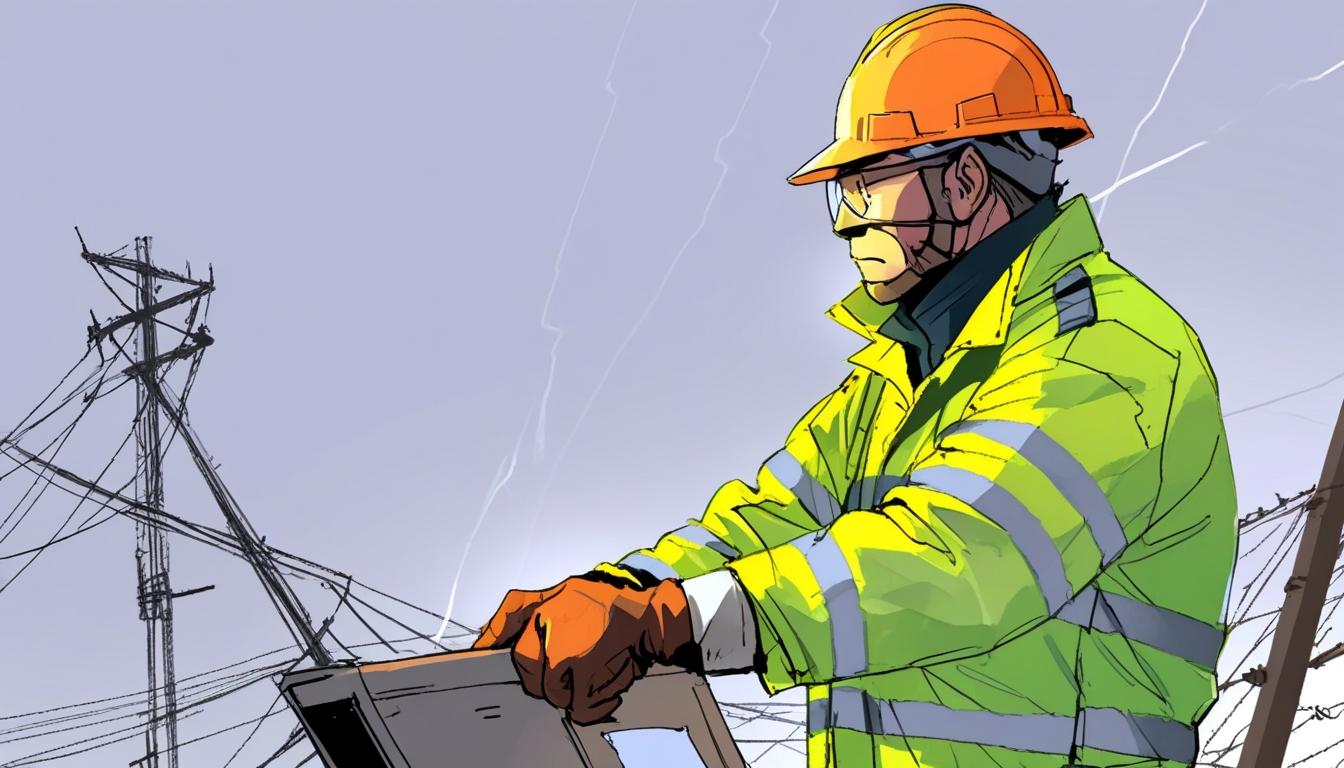A Unite the Union survey reveals that 59% of workers in Northern Ireland were required to attend outdoor duties during Storm Eowyn, raising serious concerns over safety measures amid extreme weather. The union calls for climate-proof health and safety laws and introduces proposals including paid climate leave.
A recent survey conducted by Unite the Union has revealed that during the passage of Storm Eowyn in Northern Ireland, a majority of workers were still expected to report for outdoor duties despite severe weather warnings being in place. The survey results indicated that 59% of respondents were required to attend work outside even as a red weather warning was issued.
These findings prompt renewed attention to worker safety during extreme weather events. Since the tragic death of union member Matthew Campbell in 2018—who was fatally injured by a falling tree while working during Storm Ali—Unite has engaged in multiple discussions with various Stormont departments to advocate for better protections for workers in adverse weather conditions.
Caoimhe Archibald, the Economy Minister, has responded to these concerns by pledging to convene a ‘round table’ meeting aimed at addressing workplace safety amid extreme weather.
Despite the risks, the survey found that only 23% of workers felt safe during Storm Eowyn, while 66% believed that their employers had not taken all reasonable safety precautions. Among those workers whose employers did not mandate attendance on the storm day, more than half were forced to utilise annual leave, unpaid leave, flexitime, sick leave, time-off-in-lieu, or holiday entitlement to cover their absence.
Sharon Graham, Unite’s general secretary, highlighted these issues in a statement to the Irish News, saying: “Our survey exposes that many workers felt unsafe working and travelling during Storm Eowyn, while some employers even attempted to shift the financial cost of closure onto workers by insisting they take a day’s leave. On International Workers’ Memorial Day, we are demanding that the government climate-proof health and safety laws to ensure that workers’ lives and incomes are protected during extreme weather.”
In addition to pressing for improved health and safety regulations, Unite is proposing the introduction of a statutory maximum working temperature to safeguard employees against heat-related risks. The union is also seeking discussions with Enterprise Minister Peter Burke in the Republic of Ireland regarding these proposals.
Among their additional proposals is the establishment of four days’ paid “climate leave” for workers unable to safely commute or who must manage urgent domestic situations caused by extreme weather events. These measures are part of a broader effort to adapt workplace practices and legislation to the realities of climate change and its impact on worker safety and welfare.
Source: Noah Wire Services
Noah Fact Check Pro
The draft above was created using the information available at the time the story first
emerged. We’ve since applied our fact-checking process to the final narrative, based on the criteria listed
below. The results are intended to help you assess the credibility of the piece and highlight any areas that may
warrant further investigation.
Freshness check
Score:
8
Notes:
The narrative references recent events surrounding Storm Eowyn, which is a current weather event, and includes a 2018 incident for context. The presence of recent quotes and plans for meetings indicates up-to-date content. There is no direct indication the story is recycled from older articles or a press release, but the use of a 2018 incident for background is acceptable context rather than outdated news.
Quotes check
Score:
9
Notes:
Quotes from Sharon Graham, Unite's general secretary, are clearly attributed and linked to the recent survey findings. No earlier sources found for these quotes, implying originality and first-hand statement in this narrative.
Source reliability
Score:
7
Notes:
The narrative originates from the Irish News, a known regional news outlet with some reputation but less widespread international recognition compared to outlets like Reuters or BBC. This provides moderate reliability but less certainty than major global news providers.
Plausibility check
Score:
9
Notes:
Claims about workers attending outdoor duties during a red weather warning and related safety concerns are plausible and consistent with reported weather impacts and labour union activity. The presence of specific names, statistics, and ongoing government responses adds credibility. Proposals for climate leave and statutory temperature limits are emerging topics reflecting current climate adaptation discussions.
Overall assessment
Verdict (FAIL, OPEN, PASS): PASS
Confidence (LOW, MEDIUM, HIGH): HIGH
Summary:
The narrative reports recent survey data and responses from relevant officials and union leaders in the context of Storm Eowyn, with no signs of outdated or recycled content. Quotes appear original and timely. The Irish News provides moderate reliability. The claims align with current climate and workplace safety discussions, making the narrative both plausible and credible.
